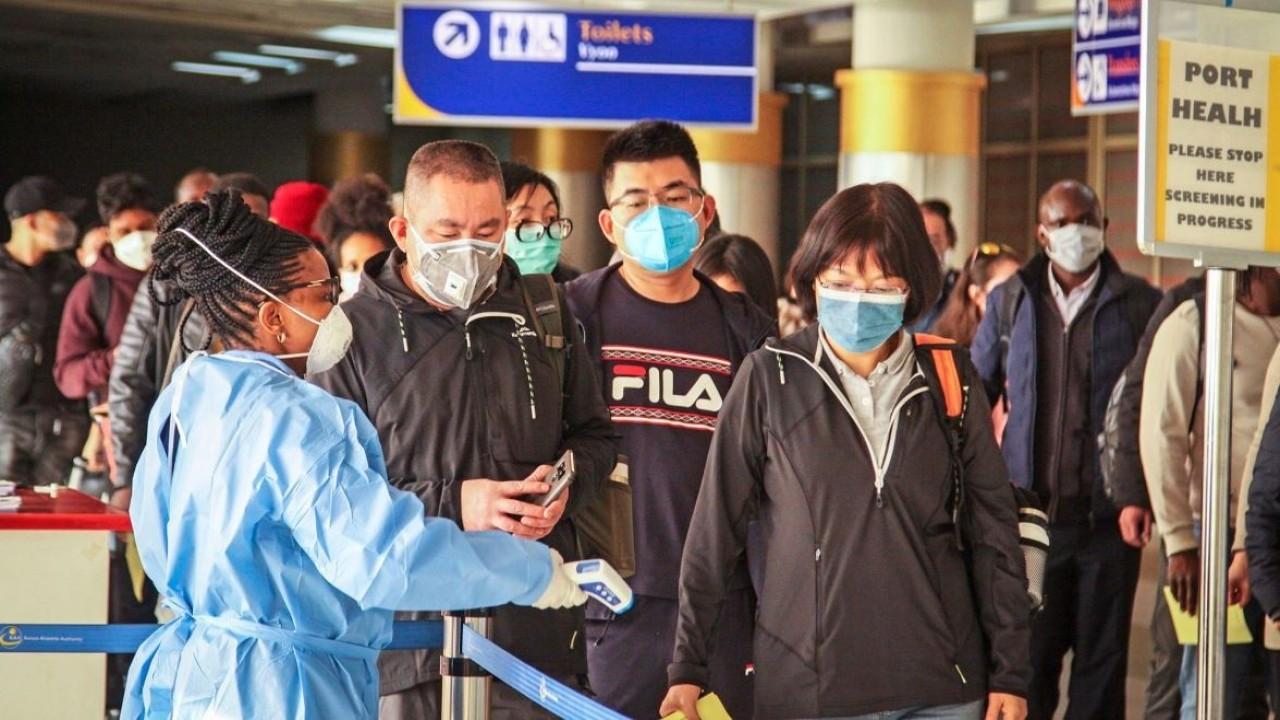Can pets carry coronavirus?
One dog in Hong Kong tested positive for COVID-19 and has been quarantined
A Pomeranian in Hong Kong reportedly tested positive for traces of coronavirus last week and has been quarantined as a possible first human-to-animal transmission.
The fluffy canine tested "weak positive” for COVID-19 in its nasal and oral cavities after living with its infected owner, the Hong Kong Agriculture, Fisheries and Conservation Department announced Feb. 26. The dog exhibited no symptoms of the virus but it has been quarantined for further testing under the government agency.
CORONAVIRUS FEARS LEAD DOG OWNERS TO BUY FACEMASKS
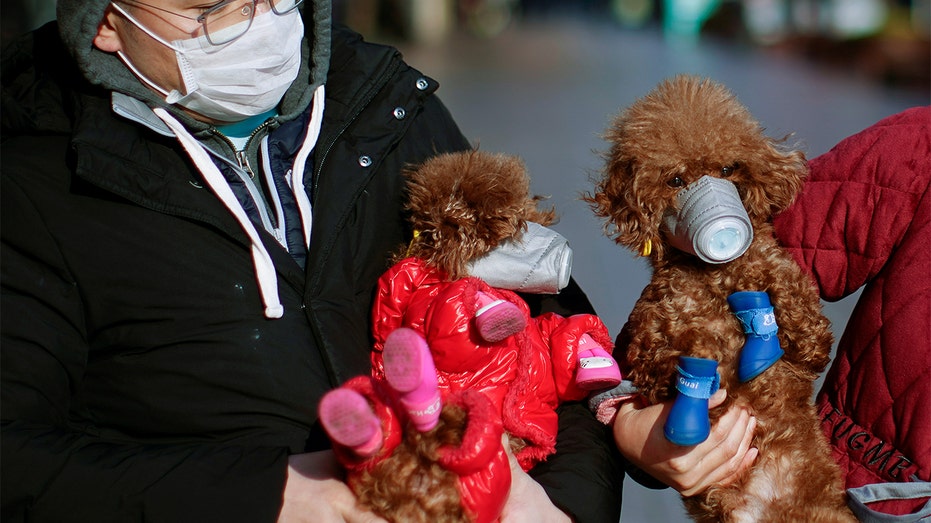
Dogs wearing masks at the main shopping area in downtown Shanghai, China, as the country is hit by an outbreak of a new coronavirus, Feb. 16, 2020. (REUTERS/Aly Song)
Both the World Health Organization and Hong Kong’s AFCD agree that there is no solid evidence that proves pets can contract the virus, however, the AFCD “strongly advises” that pets of infected owners be quarantined for 14 days to be on the safe side since the virus can live on surfaces and objects for extended periods.
Hong Kong, which has had 102 confirmed cases and two deaths related to the illness as of March 4, is faring better than its neighbor mainland China, which has been afflicted with 80,270 confirmed cases and 2,981 deaths, according to Johns Hopkins University's live tracker. The situation is so dire in China, the People’s Bank of China began destroying banknotes collected by hospitals, wet markets and buses last month, according to a report from the South China Morning Post.
ARE CHILDREN CORONAVIRUS CARRIERS?
Although the precaution may be viewed as extreme or helpful by some, it’s not quite as simple to get rid of furry friends who may have tested positive for carrying the virus.
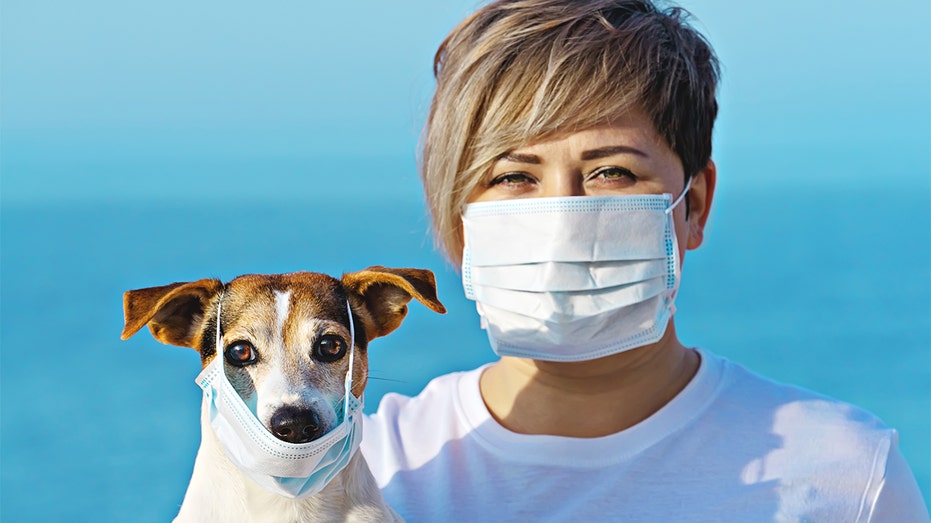
(iStock)
Vanessa Barrs, a professor and specialist in infectious diseases in animals, said it could be possible for the coronavirus to infect dogs because the pathogen attaches to a cell receptor protein known as ACE2, according to a report from The Wall Street Journal.
WHO RAISES GLOBAL CORONAVIRUS RISK FROM 'HIGH' TO 'VERY HIGH'
However, she noted that a possible infection doesn’t mean dogs can get sick from the coronavirus or transmit it back to humans. In her own words, “People should not panic. Pets are very unlikely to be contributing to the spread of COVID-19.”
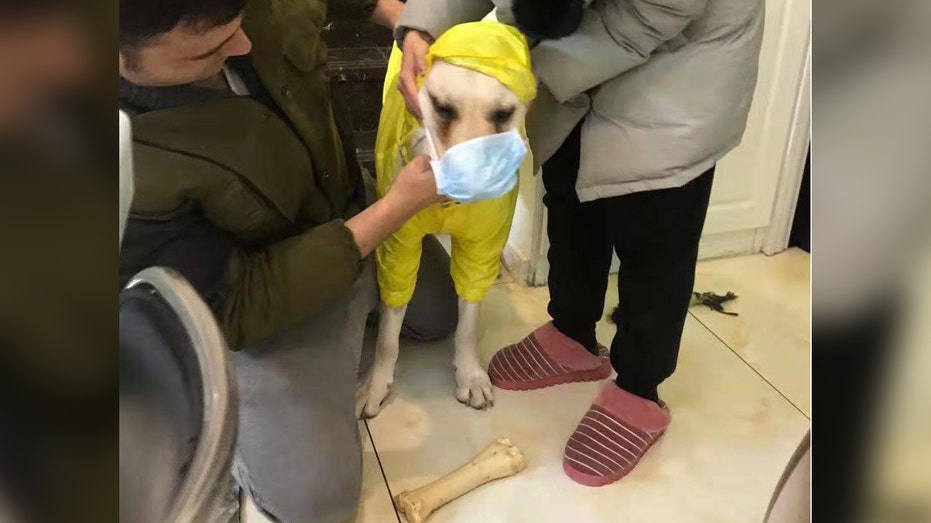
Some consumers have been purchasing canine masks for dogs amid the coronavirus outbreak despite the WHO having said here's no evidence animals are at risk. (AP/Doug Perez)
Barrs, who is chair professor of companion animal health and disease at the City University of Hong Kong, told the South China Morning Post that a similar circumstance had been observed in the 2003 SARS outbreak.
GET FOX BUSINESS ON THE GO BY CLICKING HERE
“Previous experience with SARS suggests that cats and dogs will not become sick or transmit the virus to humans. At that time, a small number of pets tested positive but none became sick,” Barrs said in the report. “Importantly, there was no evidence of viral transmission from pet dogs or cats to humans.”
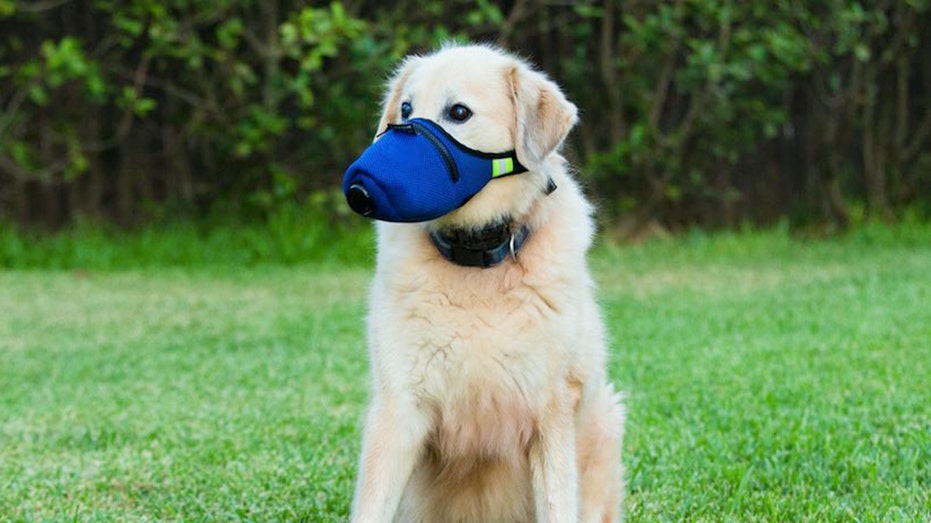
Austin-based company k9 Masks sells masks in the shape of muzzles for dogs said to protect against bacteria. (Courtesy of k9).
For the Pomeranian in question, Barrs said the dog’s weak positive test result is not surprising considering its proximity to the infected owner.
The U.S. Centers for Disease Control and Prevention said the coronavirus is primarily spreading from close person-to-person contact. To minimize your chance of contracting the coronavirus, the CDC recommends washing your hands often with antibacterial soap and water for at least 20 seconds or using a hand sanitizer that contains at least 60 percent alcohol.
CLICK HERE TO READ MORE ON FOX BUSINESS
Concerned individuals should also avoid touching mucous membranes that can easily be compromised such as your eyes, nose and mouth.




















